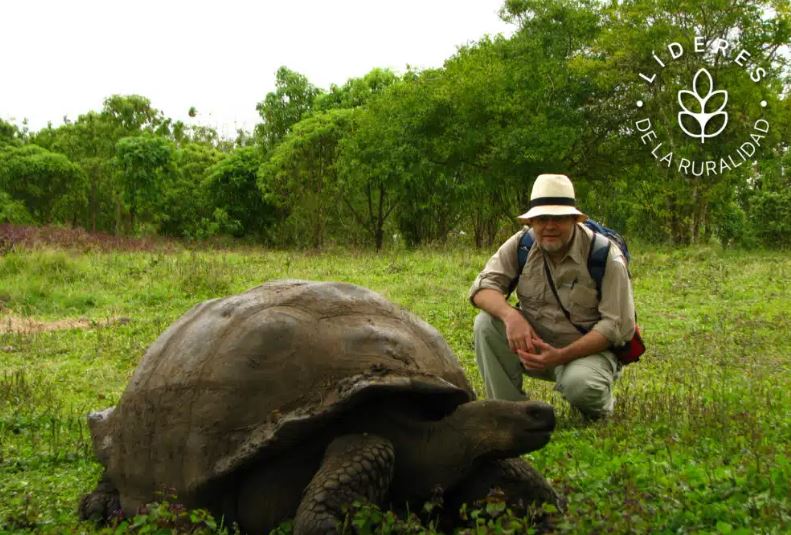Argentinian teacher **Claudio Bertonatti** was recognized as “**Leader of Rurality in the Americas**” by the Inter-American Institute for Cooperation on Agriculture (**IICA**).
This is an international [recognition](https://noticiasambientales.com/compromiso-ambiental/cordoba-premiada-entre-las-ciudades-saludables-del-mundo/) that the institution awarded him for his work in **nature conservation** and also cultural heritage.
Bertonatti is a **conservationist** and also an expert in museology, environmental management, and historical botanical gardens.
## Leader of Rurality in the Americas: who is the distinguished Argentine
As a researcher at the Center for Natural, Environmental, and Anthropological Sciences at Maimónides University and scientific advisor to the Azara Foundation, for years he has traveled through the **Latin American nature**, from jungles and plains to small plantations.
On a larger scale in Argentina, he gained prominence in 2016 when he stated that it was “wrong to believe that no animals are killed with a vegan diet.” In an interview, he explained that a vegetarian or vegan diet **requires the intensification of crops**, “generally, over vast areas.”
## Bertonatti’s Research
However, Bertonatti’s perspective is broader and focuses on various points. “The majority of people worldwide, more than 50%, live in cities, towns, far from natural, wild, or rural landscapes,” he pointed out.

“That distance is not only physical or geographical: it is also an **intellectual, emotional, and rational distancing** that has many disadvantages,” he explains.
“Because urbanity ignores the values of rural life, it ignores the functions that, for example, wild ecosystems perform through the provision of the goods or **services on which we all depend to live**,” he adds.
For Bertonatti, this isolation leads many urban inhabitants of the planet to “not consider ourselves part of nature or to believe that wild or rural spaces are one thing and we are another.”
“My work consists of tracking these spaces, these landscapes, and studying them, both from behind the desk and in the field, to better understand not only nature and biodiversity but also local culture,” Bertonatti contributes.
## Work as a Teacher
Bertonatti is also a teacher. “It is sharing what the people in the countryside have taught me, people who may not read or write well but have a doctorate in what I would call the university of the countryside,” he says.
“People who throughout their lives have been **gathering knowledge passed down from generation to generation** and that often goes unseen or unappreciated in academic settings,” he points out.
He insists that rural producers “can reinforce good practices for the benefit of all.”
Bertonatti emphasizes that the **low appreciation of the countryside and green landscapes** also leads to a lack of appreciation for basic phenomena such as oxygen production and the provision of drinking water.
In this regard, the museologist and teacher affirms that it is necessary to “work from schools, from homes, from production.”
To show the advantages of consuming local products, seasonal products, organic products, contrasting with the reality of what is not organic, “what is distant and has a **tremendous environmental impact**.”
Have you visited our YouTube channel yet? Subscribe now!

